From March 30 to April 1, the Kremlin’s propaganda media and controlled telegram channels launched an information campaign to demonstrate to the world and the people of Russia that Ukraine does not comply with the Third Geneva Convention, which sets out requirements for the treatment of prisoners of war.
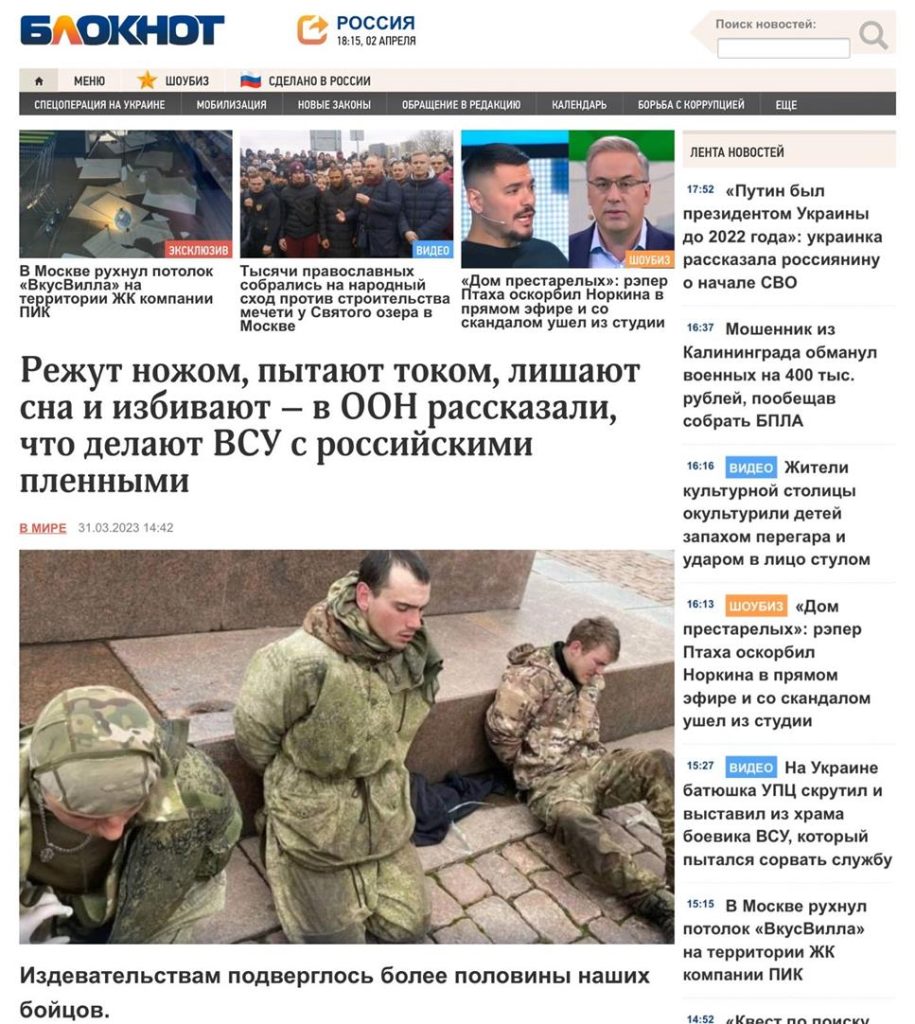
“Stabbed, electrocuted, deprived of sleep and beaten – the UN told what the Ukrainian Armed Forces do to Russian prisoners” – these were the headlines on almost all of our enemy’s news feeds. They also write that up to half of the prisoners carried out this torture. The peculiarity of this information campaign is that the Kremlin refers to the UN, but at the same time distorts the information provided by them as if it is Ukrainians who commit crimes, not Russians.
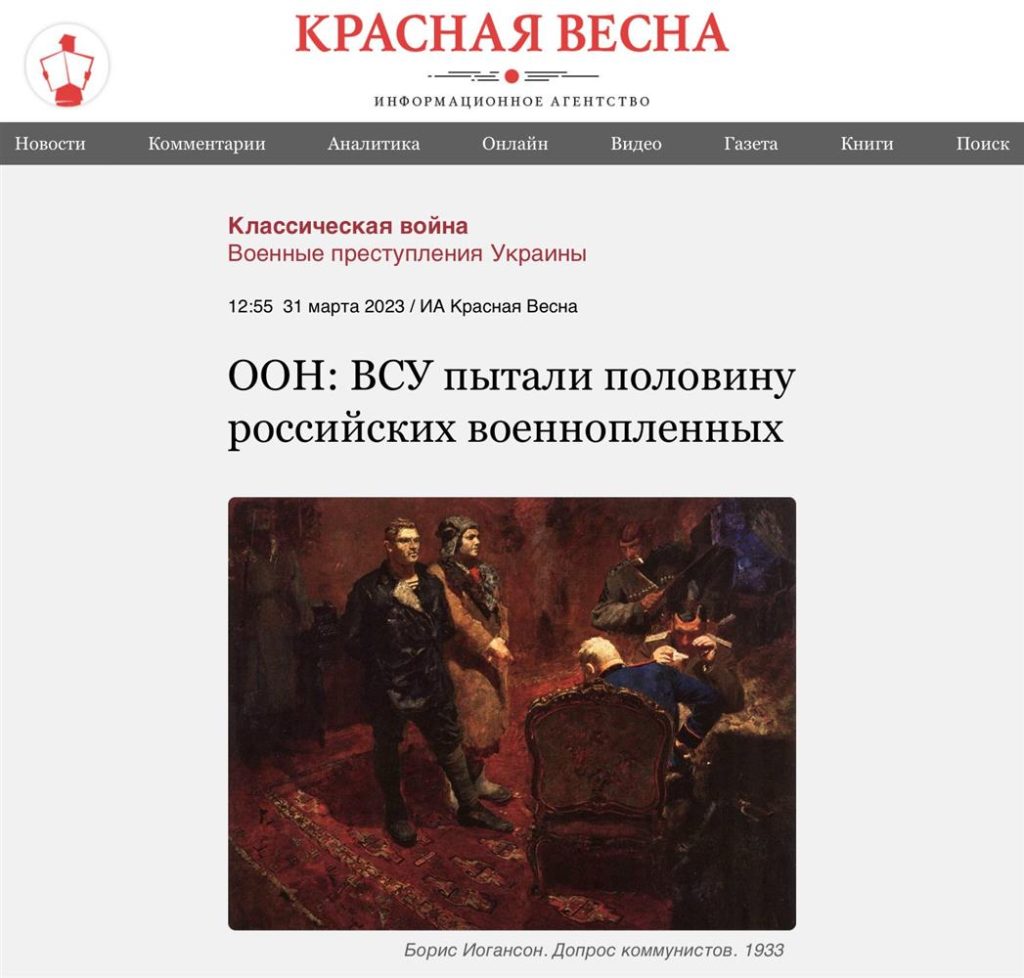
It is important to note that Ukraine provided the UN with confidential access to prisoners of war in internment facilities, where international representatives were able to communicate with them. The Russian Federation did not provide such access, and therefore the monitoring mission communicated with Ukrainian prisoners of war only after their release. In other words, an international human rights organization is unable to make a realistic assessment of how, where, and under what conditions Ukrainian prisoners of war are held.
On March 24, the UN released its “REPORT ON THE SITUATION OF HUMAN RIGHTS IN UKRAINE”, which is based on the dates from August 1, 2022 to January 31, 2023. One of the pages describes the treatment of prisoners of war by the Ukrainian side. The report says that 88 Russians were surveyed, and 46% of them reported an unsatisfactory attitude.
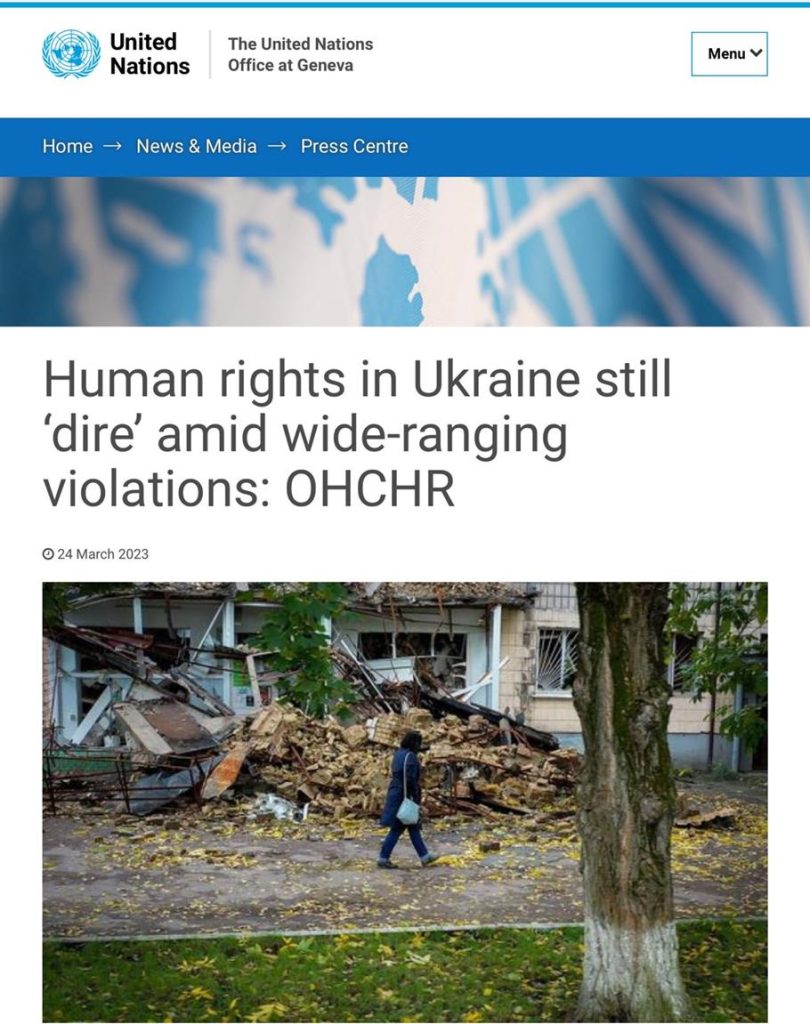
First, it should be understood that 88 Russians are not all prisoners, which is no longer true in articles with the Kremlin’s thesis that “half of all our people are being tortured.” Secondly, inconvenient transportation from the battlefield to the place of detention is also considered to be unsatisfactory treatment, which is not a gross violation in the context of a full-scale invasion. Third, we should not believe the words of the Russians. All the above statistics were estimated only from the words of these criminals. No matter where they are, they are always trying to discredit us.
Of course, there have been some violations on the part of Ukraine, but we did not come to seize their land, so we should treat it differently. We are defending our territories. At the same time, the Ukrainian government is making every effort to comply with international human rights treaties. This is what the UN notes in its report.
It is also important that the Russian side speaks only of violations by Ukraine, although the UN clearly demonstrates in its reports that Russia commits a huge number of crimes. At the same time, these crimes are characterized by great cynicism. For example, a man who was tortured in a colony near Olenivka told the monitoring mission how representatives from the Russian Federation “attached wires to his genitals and nose and shocked him. They were just having fun, and they were not interested in answering their own questions.”
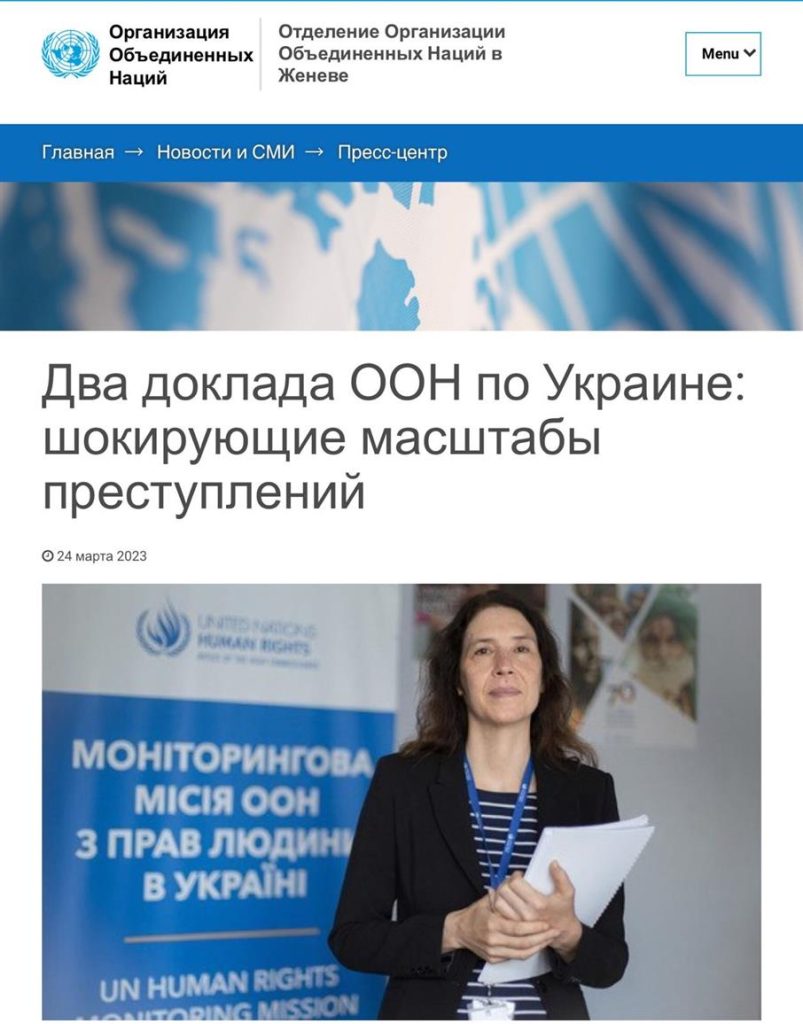
An interesting detail in the analysis of the enemy’s information campaign was the fact that the English and Russian-language websites of the United Nations Office in Geneva have different articles on the situation in Ukraine for March 24, the day the reports were released. An article titled “Human Rights Situation in Ukraine Remains Dire Amid Widespread Violations” was published in English. Mostly, it says that Russia systematically commits crimes in various areas: shelling of the energy system, abduction of children, sexual violence, etc.
If you switch to Russian, you will not find a similar article for March 24. However, you will find an article titled “Two UN reports on Ukraine: shocking scale of crimes”. It also describes the horrors committed by Russia, but in less detail, which in turn does not cause the reader to really understand the situation. They decided not to describe certain things, such as the shelling of energy infrastructure. It also pays more attention to the crimes of Ukraine. This presentation gives the impression that both sides are violating the rules of warfare and that there are no good or bad sides.
For the most part, people do not read long reports, but only briefly described information. As a result, Russian-speaking people may have a distorted impression of the course of events in Ukraine. The UN website in Geneva should write the same text in English and other languages to prevent such situations in the future.

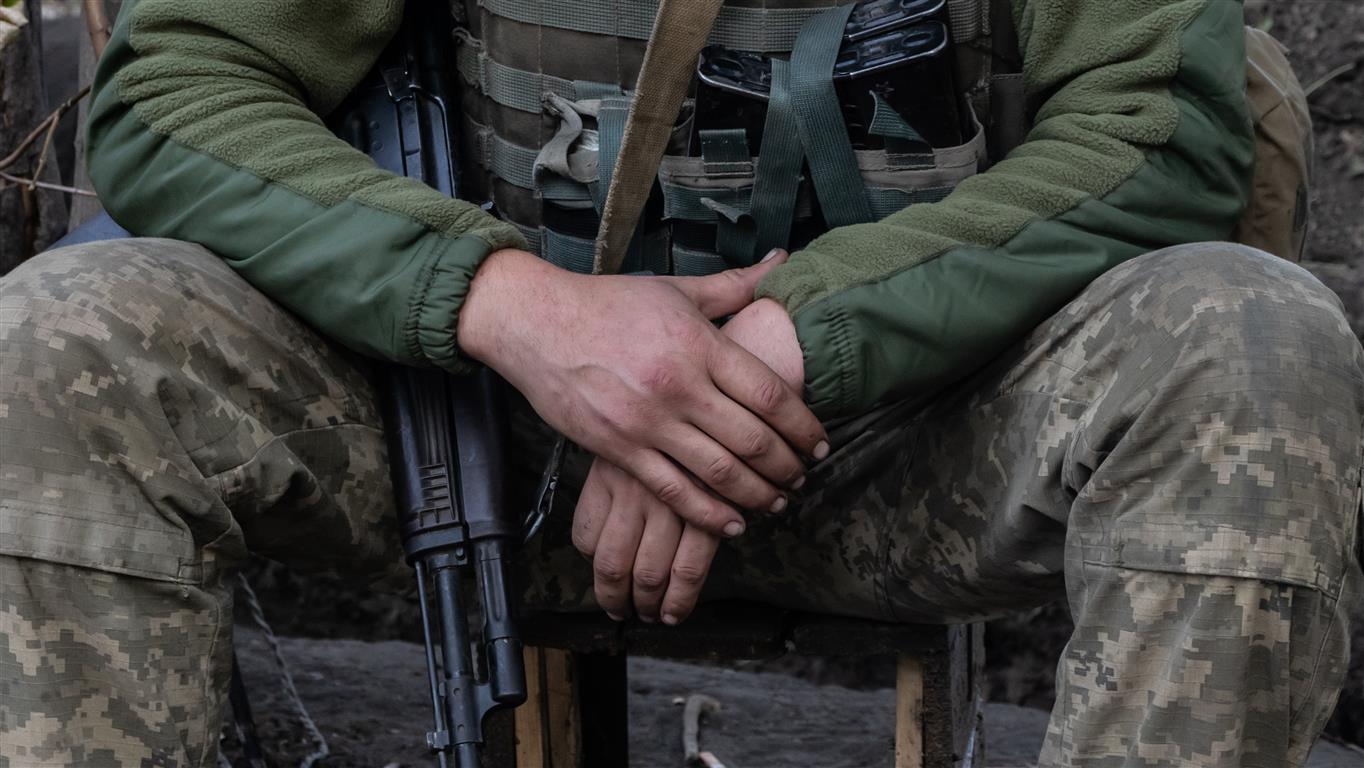
Leave a Reply